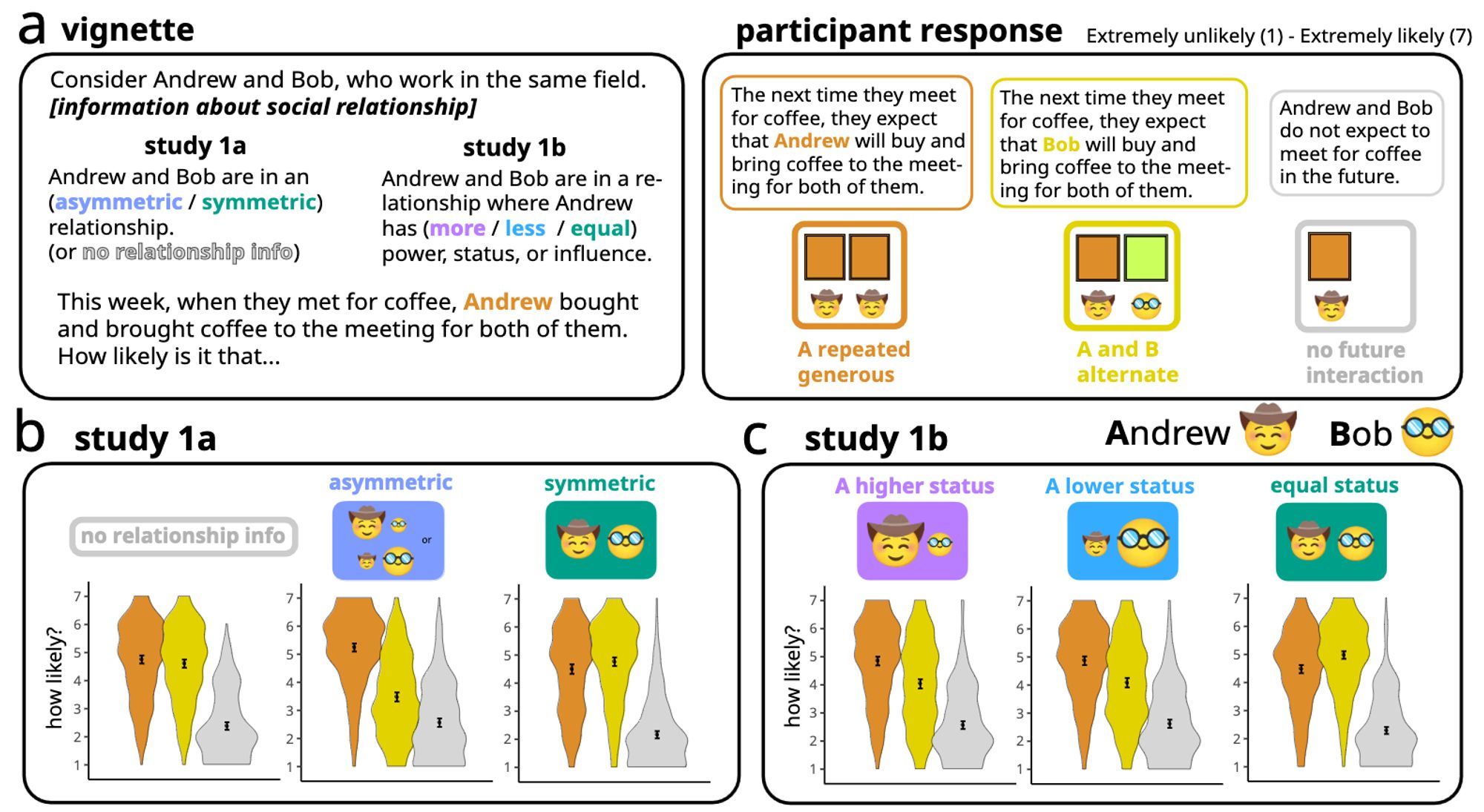AC
Alicia Chen
@aliciamchen.bsky.social
PhD student @ MIT Brain and Cognitive Sciences
aliciamchen.github.io
72 followers61 following20 posts
Here, we instead showed people naturalistic scenarios describing a variety of everyday generous acts (like buying someone coffee). With this small amount of extra context, people did *not* expect reciprocal (alternating) actions, over one person being repeatedly generous… (4/11)
And when we told them that the two people in the scenario are in a hierarchical relationship (i.e. a relationship where one person has more power/status/influence than the other), people’s expectations changed drastically, and they *strongly* expected repeating actions, over alternating (5/11)

AC
Alicia Chen
@aliciamchen.bsky.social
PhD student @ MIT Brain and Cognitive Sciences
aliciamchen.github.io
72 followers61 following20 posts